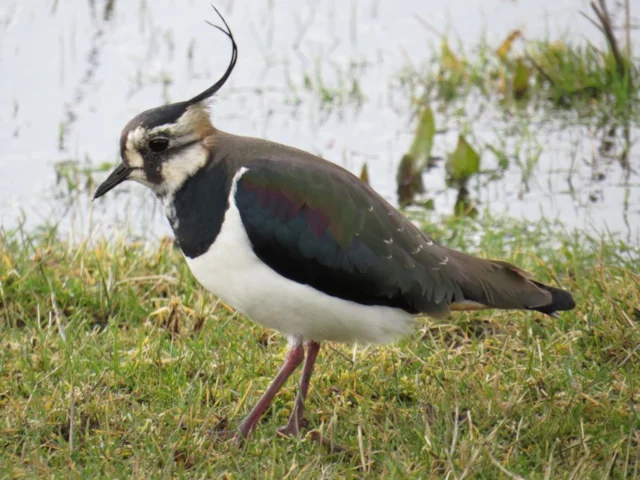Brighter future for Welsh wildlife
2db8075b-0848-40b2-9d51-ab3907d28185

RSPB Cymru has welcomed the Welsh Government’s response to the evaluation of the Glastir Advanced Agri-Environment scheme, published this week.
Glastir Advanced is intended to deliver environmental improvements for a range of habitats, species, soil and water, and is available to farmers and land managers across Wales. The evaluation, which focussed on concerns about the ability of the scheme to deliver for wildlife and habitats, was completed by a panel of experts from the environmental industry. The panel made a number of recommendations, most of which have been accepted by the Welsh Government and will be implemented immediately.
Arfon Williams, Countryside Manager for RSPB Cymru, said: “We believe, if fully implemented, the recommendations have the potential to make significant improvements. The State of Nature Report launched back in May 2013 highlighted that 60 per cent of wildlife is in decline across the UK, coupled with the fact that 80 per cent of the Welsh countryside is farmed, Glastir is the Welsh Government’s main tool to help them meet their own internationally agreed target of halting wildlife loss by 2020.”
One of the recommendations from the panel highlighted the need for advice and guidance, and ongoing support for participating farmers when it comes to managing their land for wildlife. This is particularly critical where wildlife is the objective, as some birds and animals require very specific management.
As Arfon explained: “Breeding wading birds like Eurasian Curlew, Northern Lapwing and European Golden Plover, which have declined by over 75 per cent, need an assortment of habitats throughout the year to thrive, from open and flat land to nest, to specific feeding habitats like damp boggy areas or farmland in spring and summer, and wet fields in autumn and winter, where high numbers of soil invertebrates provide food for adults and chicks.
“Glastir must provide all the above for all its target wildlife, guaranteeing farmland wildlife has everything it needs to thrive and becomes a key part of a wider plan to reverse wildlife declines by 2020.”
RSPB Cymru believes Glastir Advanced could become an exemplar land management scheme, putting Wales at the forefront of saving nature, and at the same time improving the conditions of Wales’s environment and countryside for future generations.
Glastir Advanced is intended to deliver environmental improvements for a range of habitats, species, soil and water, and is available to farmers and land managers across Wales. The evaluation, which focussed on concerns about the ability of the scheme to deliver for wildlife and habitats, was completed by a panel of experts from the environmental industry. The panel made a number of recommendations, most of which have been accepted by the Welsh Government and will be implemented immediately.
Arfon Williams, Countryside Manager for RSPB Cymru, said: “We believe, if fully implemented, the recommendations have the potential to make significant improvements. The State of Nature Report launched back in May 2013 highlighted that 60 per cent of wildlife is in decline across the UK, coupled with the fact that 80 per cent of the Welsh countryside is farmed, Glastir is the Welsh Government’s main tool to help them meet their own internationally agreed target of halting wildlife loss by 2020.”
One of the recommendations from the panel highlighted the need for advice and guidance, and ongoing support for participating farmers when it comes to managing their land for wildlife. This is particularly critical where wildlife is the objective, as some birds and animals require very specific management.
As Arfon explained: “Breeding wading birds like Eurasian Curlew, Northern Lapwing and European Golden Plover, which have declined by over 75 per cent, need an assortment of habitats throughout the year to thrive, from open and flat land to nest, to specific feeding habitats like damp boggy areas or farmland in spring and summer, and wet fields in autumn and winter, where high numbers of soil invertebrates provide food for adults and chicks.
“Glastir must provide all the above for all its target wildlife, guaranteeing farmland wildlife has everything it needs to thrive and becomes a key part of a wider plan to reverse wildlife declines by 2020.”
RSPB Cymru believes Glastir Advanced could become an exemplar land management scheme, putting Wales at the forefront of saving nature, and at the same time improving the conditions of Wales’s environment and countryside for future generations.

